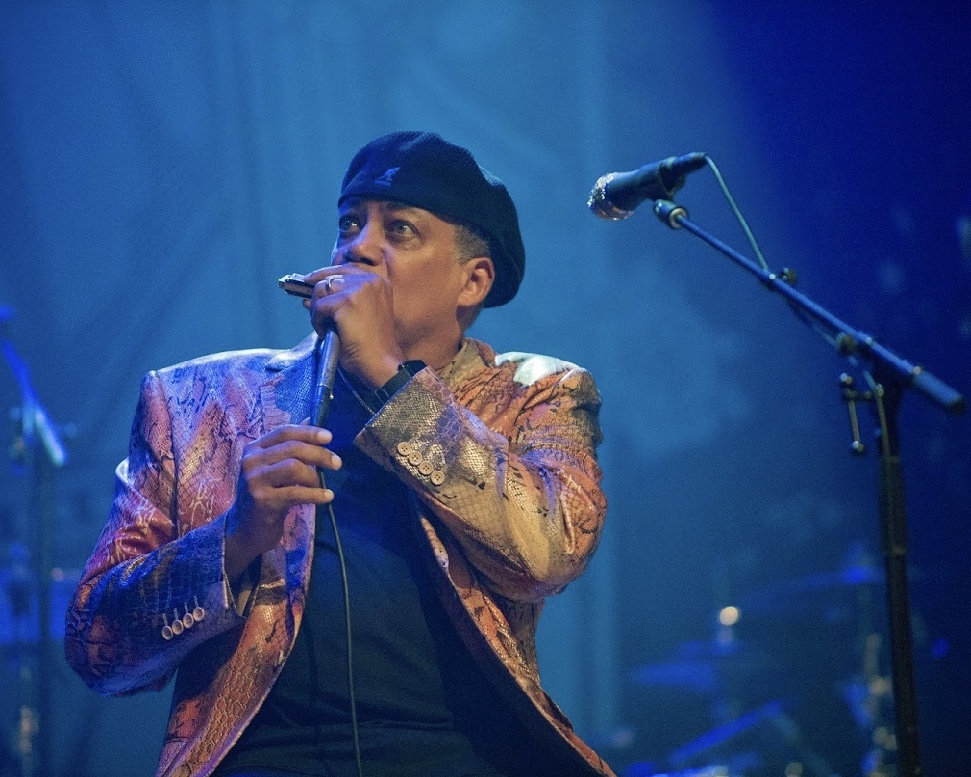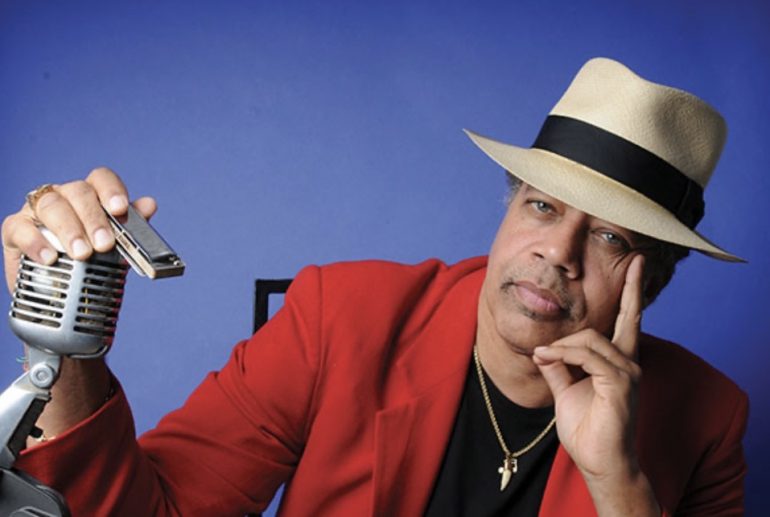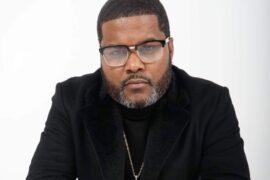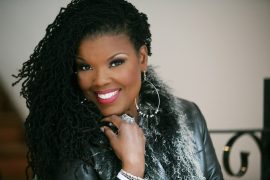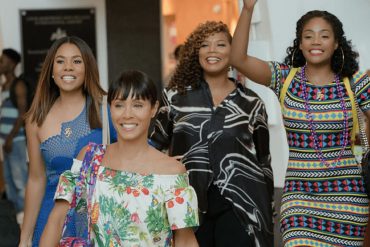Billy Branch is a Chicago blues harmonica player who grew up learning directly from some of the classic generation of Chicago players such as Carey Bell, James Cotton, and Junior Wells. Billy played in Willie Dixon’s band for six years and has been nominated for three Grammy awards. He has become a real ambassador of the blues.
A great technical exponent of the harmonica with great soul, Billy sat down with N’DIGO and talked about how he got his start playing the harmonica, his career working to keep the genre relevant, including leading workshops in Chicago public schools, and touring the globe with his band, the Sons of Blues.
N’DIGO: How did you become interested in the harmonica?
Billy Branch: Both of my parents were raised in the Woodlawn neighborhood on the South Side of Chicago. I was born in Chicago, but our family moved to L.A. in 1955. Around the age of 11, I walked into a Woolworth’s department store in Los Angeles.
In a display case was a shiny harmonica. I had never seen or heard anyone play one before, but a little voice told me that I could play it. I asked the clerk what the price was. He told me that it cost one dollar. I paid him and immediately after putting the harmonica in my mouth, I was able to play any folk melody or Christmas carol that I could think of.
In recent years, I found out that my great grandfather William Jasper Prince, who was an escaped slave via the Underground Railroad, also played harmonica. He ultimately settled in Coin, Iowa, where he became owner of the local general store. I guess you might say that the harmonica was embedded in my DNA and that little voice that told me I could play the harmonica harkens back to my ancestors!
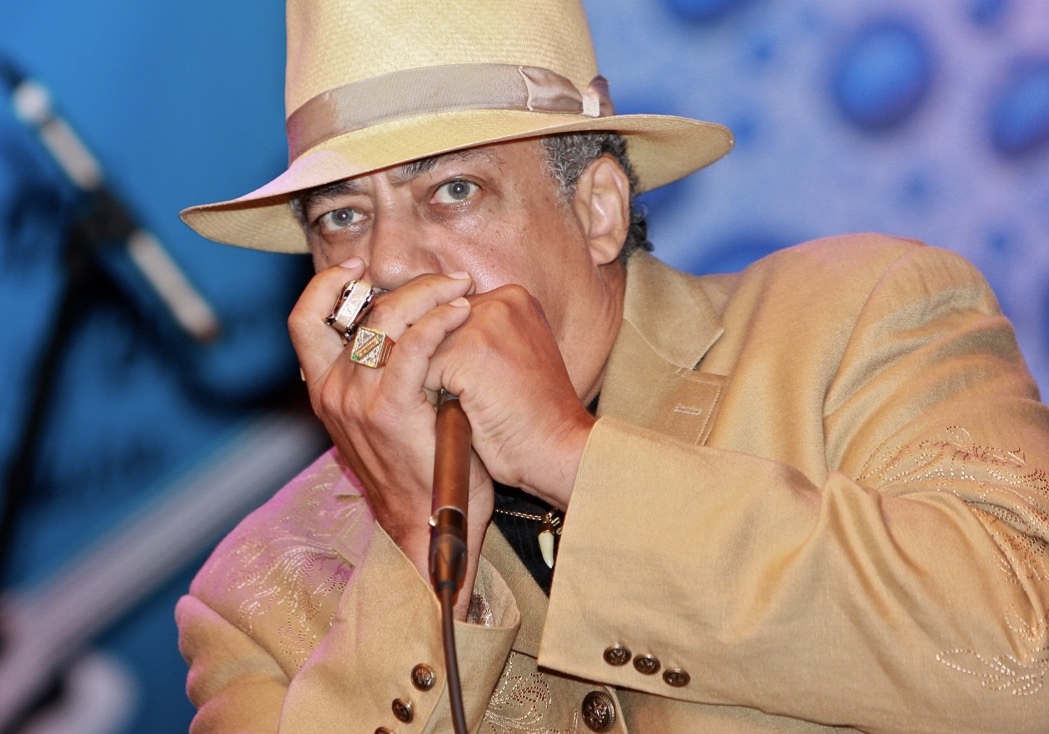
How did you become interested in the blues?
It could only be called destiny. In 1969, I moved back to Chicago to enroll in the University of Illinois at Chicago Circle Campus. Before classes were in session, I attended a festival in Grant Park, which I heard about from the radio. I had never seen or heard live Blues before. In fact, in my ignorance I thought that I did not even like the blues.
The date was August 30, 1969. This festival was called “Bringing the Blues Back Home”. It was produced by the legendary blues composer and bassist Willie Dixon, and Murphy Dunne, who was the son of Mayor Richard J Daley’s political ally George Dunne.
This festival was arguably the greatest blues festival in history. It featured some of the greatest blues musicians alive at the time, all on one bill. Some of the featured artists were: Koko Taylor, Bo Diddley, Junior Wells, Buddy Guy, Betty Everett, John Lee Hooker, Sleepy John Estes, Big Mama Thornton, Big Walter Horton, and Muddy Waters.
There were over 40 legendary musicians that appeared on that festival. Willie Dixon and his band, The Chicago Blues All Stars, backed everyone. This was the first time that I heard the blues. To say that I was hooked after that would be an understatement. I became so captivated by the music of that day that a mere seven years later, I became Willie Dixon’s harmonica player!
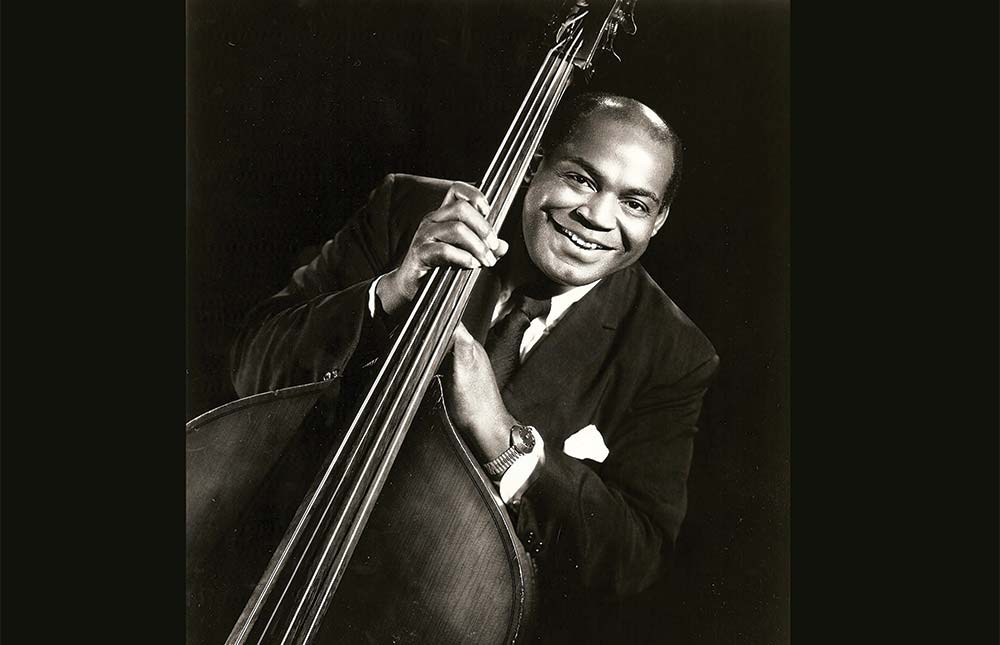
You studied politics at the University of Illinois; how did you mix politics and the blues?
As you might imagine, at the University of Illinois Circle Campus, there were a considerable number of would-be musicians. Many of us would have jam sessions every day in the Student Union building. One of my best friends at Circle was the son of the girlfriend of the legendary harmonica player, Junior Wells. My buddy took me down to the renowned Theresa’s Lounge, which was Junior’s home base. In addition to meeting Junior Wells there, I met dozens of great blues artists over the years.
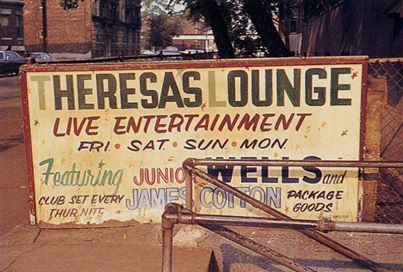
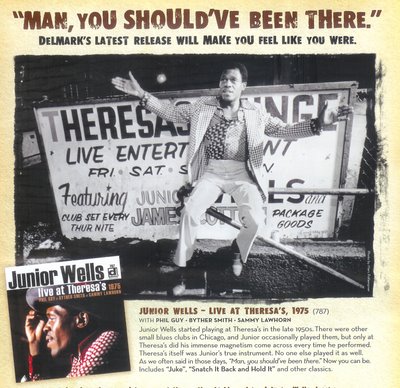
Soon after, I realized that the blues were everywhere, and wherever it was, so was I; I was hooked! I would travel to the West Side of Chicago by bus at night to some of the most bucket-of-blood joints you ever wanted to see.
During those days, there were probably over a dozen clubs on the South and West sides where you could hear live blues, seven nights a week. I just had to hear this music, so I could learn to play it. After I eventually got enough nerve to sit in with the bands, I was like a junkie. I had to have more and more; it was an insatiable need. I would go to classes during the day, then get a musical education in the blues clubs at night.
Although the blues became my career path, I continued to stay abreast of local, national, and international politics. I am a retired two-term Grammy governor and during those terms, I addressed important political issues. I am by nature a political activist, participating in the campaigns of progressive candidates and even marching when I can.
In fact, I have written political songs, campaign songs, and campaign jingles. I even performed at one of Barack Obama’s early fundraisers, and last summer I was a keynote speaker for the first Obama Foundation event in Chicago.
Who’s your favorite musical artists?
Growing up as a teenager in Los Angeles, of course I listened to a lot of music on the radio. I loved all the R&B greats and all the Motown artists. I enjoyed the Four Tops, Temptations, the Supremes, James Brown, etc.
The radio played diverse styles of music back then, so I have a wide variety of musical tastes (as most musicians do). I also listened to and enjoyed the Doors, Rolling Stones, Beatles, Iron Butterfly, War, and many other bands. As an adult I enjoy classical music, world music, new age music, gospel, jazz, rock, spoken word, and a bit of hip hop.
Most of the musicians I know appreciate a wide array of musical styles and genres. It’s difficult to choose a favorite, but Stevie Wonder, Bob Marley, and Jimi Hendrix are my three most enduring non- blues favorites. I consider them musical prophets and they inspired me musically throughout my life.
Who are the all-time blues greats?

I don’t really have room to list them all here. I was influenced heavily by Little Walter and Sonny Boy Williamson (Rice Miller) by recordings. Little Walter is the most copied and emulated harmonica player of any genre. His genius transcends musical genres. He was a true original.
Little Walter proved that there were no limits as what one could do with a 10-hole diatonic harmonica. By cupping an inexpensive microphone to the harp, and playing through an amplifier, Little Walter innovated the technique employed by most Blues harp players. He was a true pioneer.
He effectively used feedback, and an overdrive technique to create his unique, signature sound. He pioneered this technique long before Jimi Hendrix did the same with his guitar! Little Walter’s inventive solos, timing, and phrasing set him apart from all others.
Some of his solos warrant intense study. Musicians around the world continue to emulate his techniques and style. His iconic Roller Coaster is artistically more in the jazz bebop style than traditional Blues.
When his million selling hit, Juke, hit the jukeboxes in the 1950s, jazz musicians argued and took bets trying to identify what “horn” he was playing. No one could identify that it was a harmonica because NONE had made a harp sound so rich and fat prior to Little Walter!
My principal influences on the harmonica (harp) were Carey Bell, Junior Wells, James Cotton and Big Walter Horton. Some of the greats that I performed with included B.B. King, Koko Taylor, John Lee Hooker, Buddy Guy, Lou Rawls, Johnny Winter, Taj Mahal, Keb Mo, Lonnie Brooks, Bo Diddley, Lee Oskar, and of course the legendary Willie Dixon.
I also recorded with most of these wonderful musicians. In fact, I was blessed to have known and played with some of the greatest Blues musicians that ever lived. For that I am eternally grateful. I count many of them, especially Willie Dixon, as my musical mentors.
What happened to your desire to be a lawyer?
Sometimes destiny wraps its arms around you, opens doors and the ancestors compel you to walk through and embrace the unknown. Since becoming a professional musician in my twenties, I’ve been blessed with an Emmy Award, an Addy Award, three Grammy Award nominations, and multiple Blues Music Awards.
A couple years ago I celebrated the fortieth anniversary of my band, the Sons of Blues, that included past band mates and my current young members. We put on a huge show on the main stage of the Chicago Blues Festival at Millennium Park.
In addition, the Blues Foundation is inducting me into the official Blues Hall of Fame in Memphis, an honor usually bestowed on our dearly departed blues musicians, so I guess I left the lawyer track in the dust and never looked back.
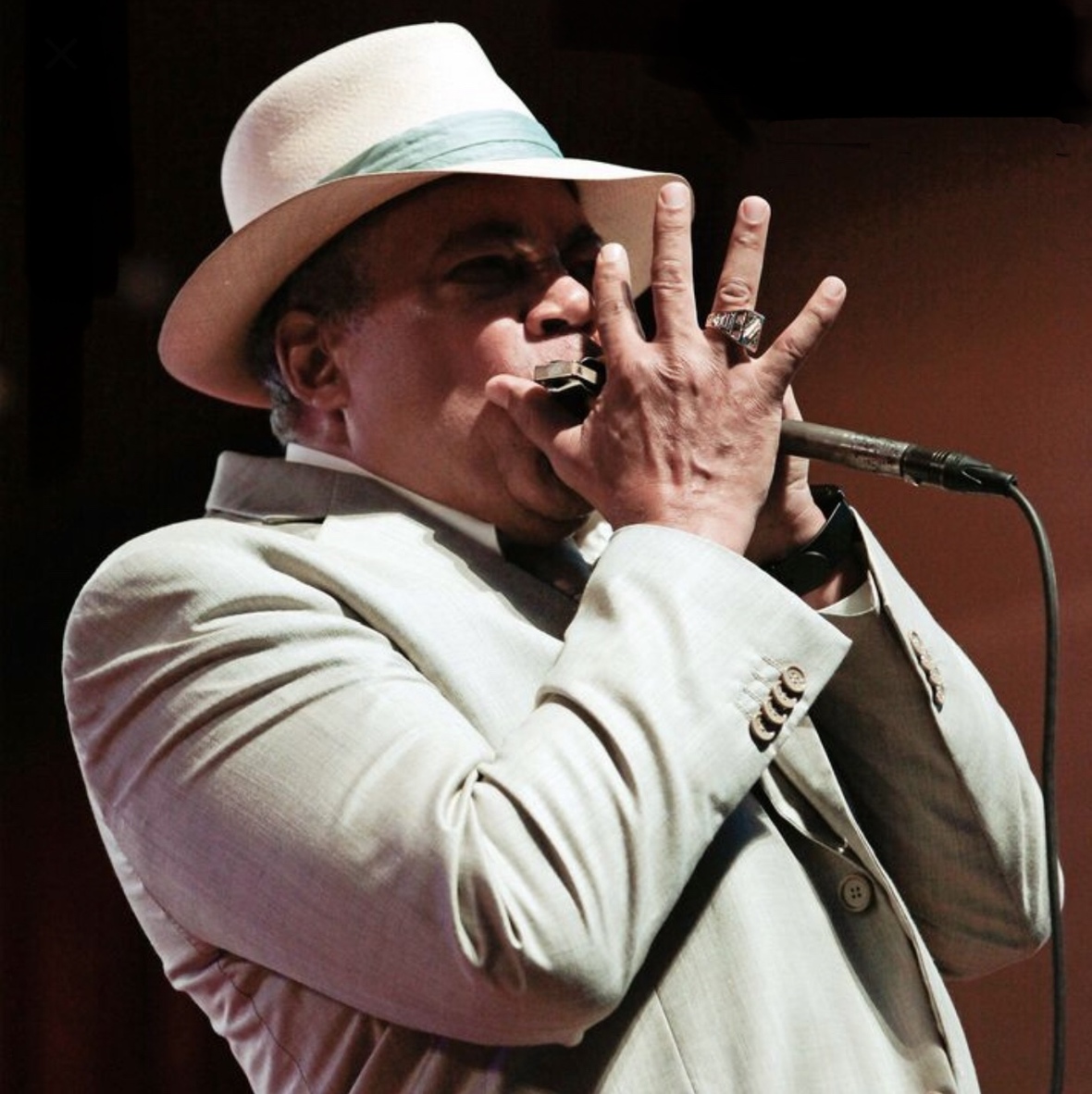
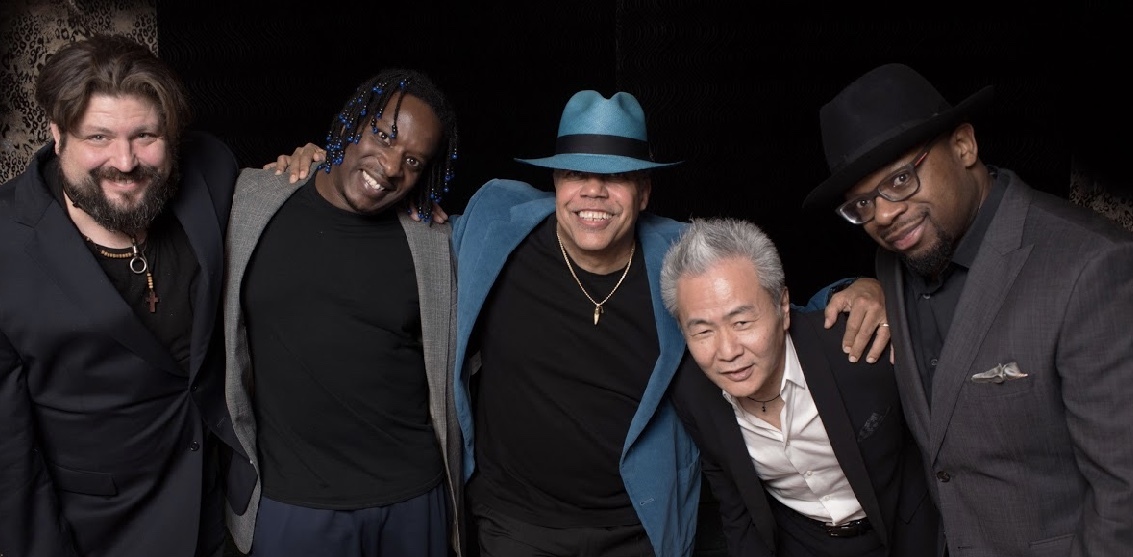
What have you been doing during the Covid-19 shut in?
On the bright side, it is rare that Rosa, my wife, and I get to be at home for more than consecutive months, so we are thrilled to have the comfort of sleeping in our own bed for a few months in a row. Also, because this is our first summer at home, I helped Rosa put in a vegetable and herb garden.
On the real, spring, summer and autumn are usually our busiest touring seasons, so with the cancellation of two, yes two, three-week tours of China, and cancellations of both national and international festivals, like most everyone else, we’ve had to make financial adjustments. I’ve been doing voiceover work, online performances, and teaching online workshops and classes.
You have been teaching harmonica online; what is the result of that?
While teaching music via Skype, Zoom, Facebook Messenger, or any such online service has its challenges, it has allowed me the option of teaching harmonica technique to serious harmonica students all over the world. I enjoy it immensely and the students are always appreciative. Students generally contract a series of lessons, so I can see their progress from week to week. It is quite satisfying.
I’ve done a couple workshops for serious musicians this summer and I was amazed to meet a 12-year-old blues harmonica player from Detroit who has been gigging with a band for a few years already! It gives me hope that the blues is alive and well.
How has the world of show business changed over the years?
This topic could be a dissertation and has been the topic at many symposiums and Grammy advocacy groups. People still respond to the groove and the energy of a dynamic show and well-produced music.
The transition from records to cassette tapes and reel-to-reel to compact discs to downloading digital mp3s has presented one set of marketing challenges. In addition, the unrestrained posting of musicians’ entire albums for consumption by fans at no cost has basically robbed us of a significant amount of income. Now we add the pandemic to the equation and the world of entertainment has been turned inside out. We now must consider new ways to:
A. produce quality music without bringing tons of musicians into a studio;
B. share our music in new ways via the internet, or in venues with Covid-19 protections;
C. figure out new ways to stay relevant and available to our fans; and
D. find new ways to monetize our creative efforts and continue growing multiple income streams. For instance, I am doing more voiceovers for commercials and plays.
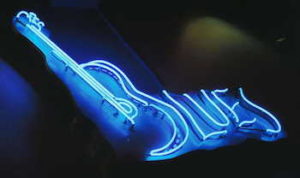
You have traveled the world teaching the blues. Why is that important?
This is a long answer because I am passionate about this! First and foremost, the blues is the root of all of America’s music and it is this prodigious African-American legacy that gave birth to America’s most popular musical genres.
Tragically, most of our audiences are not African American, in spite of the fact that this rich African-American folk music gave birth to jazz, rock, gospel, R&B, hip hop, and country. African Americans are the least likely to participate as blues promoters, blues musicians, or blues audience members!
In short, we are desperately in need of Black professionals to get involved in the blues, in particular, as investors, producers, promoters, writers, musicians, and audience members to more fully elevate this rich legacy to its rightful place. My goal is to convert music lovers to appreciate and understand this cultural legacy.
In addition to my extensive international touring, I try to include blues education to help preserve this precious musical legacy and to inspire multicultural understanding.
Think about this: if young Black children understand that their folk music gave birth to the genres of music being played around the world, it will allow them to feel pride in who we are as contributing, valued members of the USA and the international community.
In addition, as I teach the blues, and the history of the blues, to people around the world, their appreciation and respect of African Americans increases.
To see fans around the world – in China, Turkey, Japan, Australia, Canada, Argentina, Mexico, Ecuador, Uruguay, Suriname, Guyana, Costa Rica, Honduras, Guatemala, Nicaragua, Brazil, Colombia, Belize, the U.K, and all of the European Union, just to name some of the places – to see the fans, young and old, thoroughly entranced by my people’s music, reinforces my commitment to continue this quest.
I’ve been blessed by huge, wildly enthusiastic audiences and I’ve met with world leaders and international ambassadors in the process of my work as a blues musician. Yet the joy and spiritual satisfaction that I get when I share the history and importance of the legacy of my people’s music is why I continue within my Blues in Schools Program.
That and performing are simply part of my duties as an ambassador of the blues, as an example of the far-reaching influence of the Chicago blues. Little Walter would have been 90 years old this year, had he not tragically died 50 years ago.
His impact is so deeply embedded in this millennium that the Rolling Stones’ most recent album was titled Blue And Lonesome, a Little Walter song, and they recorded four Little Walter songs on that Grammy Award-winning album.
Also, I recently toured in Ecuador and Colombia, which included cultural exchanges with indigenous peoples in remote areas of the Andes Mountains (over 15,000 feet in elevation). We were surprised to hear musicians in these remote villages playing Little Walter’s intricate signature harmonica “licks” (or musical patterns) and having study groups in which these indigenous Andes Mountain musicians practiced playing the blues.
Recently, I had two long tours of China. Remarkably, there is a club in Shanghai that has pictures of Muddy Waters on every stool in the place. They have weekly blues jams in many Chinese cities. Imagine how surprised I was to hear young Chinese harp players expertly playing complicated Little Walter harmonica licks and other traditional blues artists’ songs.
Western music was only allowed into China in the late Eighties and early Nineties. Since then, they have embraced the blues, even when they cannot understand the lyrics. The musical structure and the grooves speak to them and they love it!
Little Walter is just one example of the incredible impact the blues has had on the world of music. I could literally fill a book with the magic and the blessings this music has given the world.
